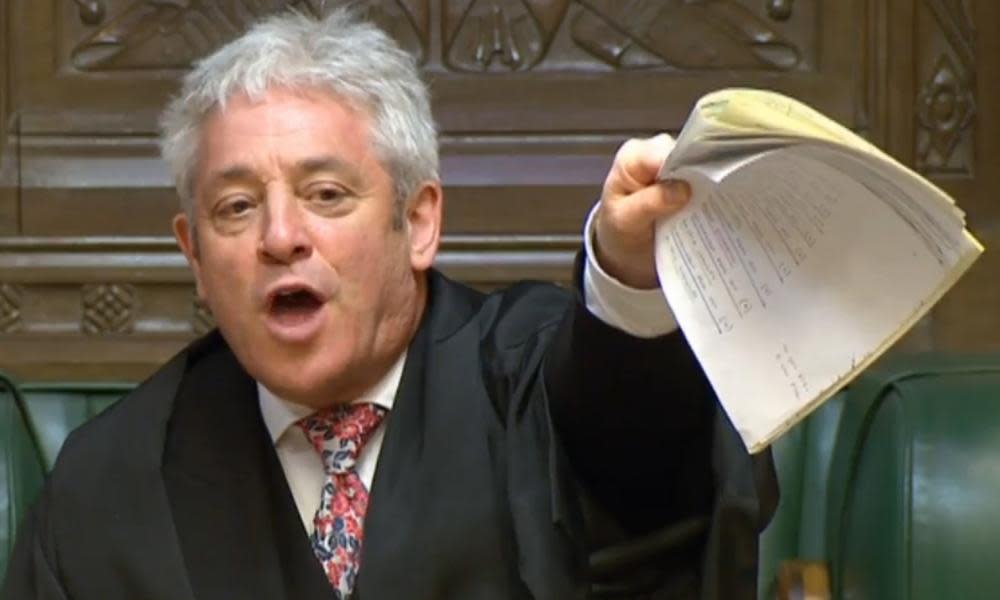John Bercow aims to stay on as Speaker to oversee Brexit process

John Bercow is planning to stay on as Speaker of the House of Commons until after the UK leaves the European Union in order to oversee the “challenging” period when MPs will thrash out Brexit laws.
Bercow will resist attempts to topple him by critical Conservative MPs as he believes the Commons needs an experienced parliamentarian in the role to supervise “very complicated and highly technical” legislation.
The Speaker, who was elected in 2009, said in the run-up to that election he would stand down within nine years – meaning Friday would be his deadline – as he did not see the post as a job for life.
He has faced calls from some MPs to stick to his original promise and resign after a series of allegations about his bullying behaviour towards former Commons staff, all of which he has denied.
But a source close to the Speaker’s office said “the clock was reset” at the 2017 general election when Bercow stood for re-election pledging to see the Brexit process through.
His election literature from last year, obtained by the Guardian, said: “Once the ballot papers have been counted, the country will have a few challenging years as we seek to establish a new relationship with the European Union.
“In the House of Commons, for example, this could require as many as 15 different new laws, some of which will be very complicated and highly technical in nature.
“During this process, I believe that parliament and the nation would be best served by a very experienced Speaker with an established track record of efficiency, fairness and sensitivity to all sides of the argument. It is on this basis as well as my local record as your MP that I seek re-election.”
The source added: “This election material speaks for itself – the clock was reset in 2017 and the Speaker was voted in on the basis that he would see the Brexit process through.”
Bercow has gained a reputation as a moderniser who changed the sitting hours of the Commons so they would be more family-friendly and has attempted to make ministers more accountable to parliament.
However, he was forced to defend his impartiality after it was reported that he backed remain at the EU referendum and he provoked controversy after vetoing an address to parliament by the US president, Donald Trump, in an unprecedented intervention.
This week it emerged that £2.4m of taxpayers’ money had been used for non-disclosure and confidentiality agreements to prevent 53 Commons staff from speaking out after they left.
Bercow’s office said: “The Speaker was elected by the house in 2017 for the course of the parliament. In the event he has anything to say on his future plans, he will make an announcement to the house first.”
Favourites to succeed Bercow include the deputy speaker, Sir Lindsay Hoyle, who is known for his low-key, no-nonsense approach and who proved himself last month when he stood in for Bercow during PMQs, leaving some MPs shouting “more, more”.
Harriet Harman, Britain’s longest-serving female MP who has a reputation for being firm but fair, is said to be interested in the role, which would make her only the second female Speaker in the Commons’ history.
The senior Labour backbencher Chris Bryant has also been tipped for the post, along with the Tory Eleanor Laing, who is also a deputy speaker, although convention suggests it is more likely to be a Labour politician next time round.

 Yahoo News
Yahoo News 
